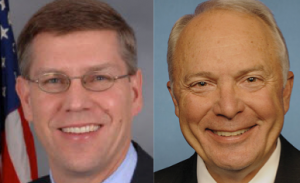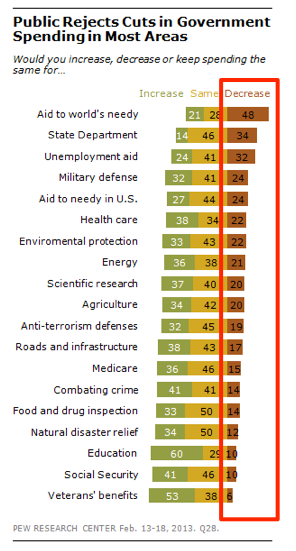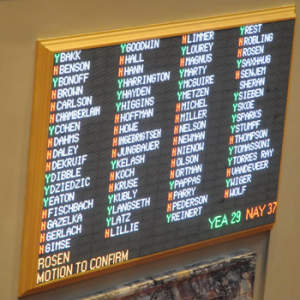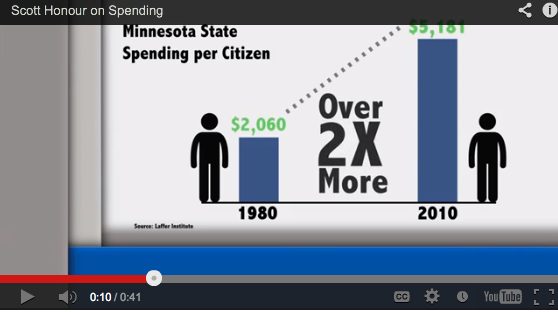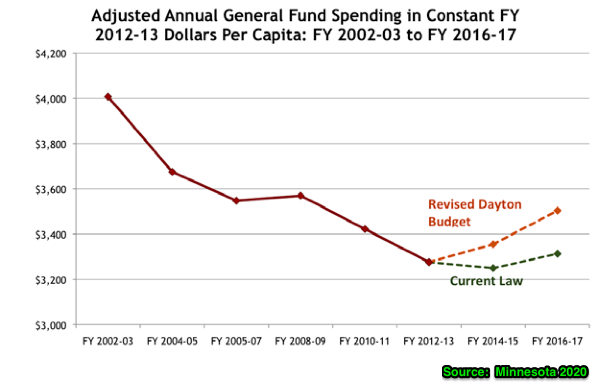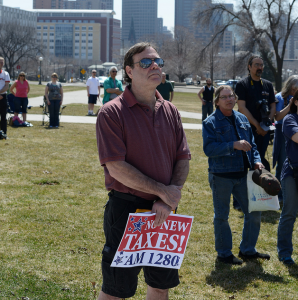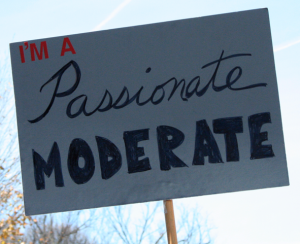 The Minnesota DFL is in serious danger of losing ground in the 2014 elections. A primary reason is turnout – too many DFLers traditionally tend to stay home in years when there isn’t a high profile presidential race. But there are policy steps that the DFL can take during the 2014 to improve their chance of bucking the historic trend of Democratic setbacks in off-year elections.
The Minnesota DFL is in serious danger of losing ground in the 2014 elections. A primary reason is turnout – too many DFLers traditionally tend to stay home in years when there isn’t a high profile presidential race. But there are policy steps that the DFL can take during the 2014 to improve their chance of bucking the historic trend of Democratic setbacks in off-year elections.
INCREASE MINIMUM WAGE. Minnesota’s minimum wage is lower than the federal minimum wage, despite the fact that our overall per capita income is the 11th highest in the nation. Shameful. Six decades of data show the claims that increasing the minimum wage will increase unemployment are unfounded. Only one-quarter of Minnesotans support keeping the minimum wage this low. The DFL needs to show its electoral base, and moderate swing voters, that it is helping the most vulnerable workers make ends meet in a shaky economy. Petty DFL-on-DFL infighting killed a minimum wage increase last year, which was an embarrassment to a party that needs to show that it is mature enough to lead the state. That can’t happen again.
PASS A MODEST BONDING BILL. It’s a bonding year at the Legislature, so much of the session’s news coverage will be focused on the bonding bill. The DFL needs to show that it is a) making job-creating infrastructure investments but b) not breaking the bank, as Republicans will reflexively claim. Passing a smart bonding bill that costs about as much as average bonding bills in the Pawlenty and Carlson eras will show moderate voters that the DFL can get things done, and be trusted to control the purse strings another couple of years.
SPOTLIGHT GOP SUPPORT OF SHUTDOWNS. The federal government shutdown in 2013 and the Minnesota government shutdown in 2011 have left Republicans’ approval ratings at historic lows. Government shutdowns are a very toxic political issue for Republicans right now. But in politics, time heals all wounds. Therefore, the DFL needs to find new ways remind moderate voters that GOP legislators still are stubbornly refusing to swear off of their reckless government shutdown fetish. Maybe that means holding votes on legislation to require a supermajority vote for the enactment of shutdowns. Maybe that means requiring votes on legislation to dock the future pay for legislators who support shutdowns. Those votes can be used in the 2014 election to breathe new life into the Republicans most damaging political baggage from the 2011 and 2013 shutdown debacles.
GIVE THE REPUBLICANS THE MICROPHONE. The DFL legislators’ best electoral weapon remains Republican legislators. When it comes to appealing to swing voters, there are a group of Tea Party-supported GOP legislators who tend to be their own worst enemies. For instance, they compare food stamps to feeding wild animals and use the floor to drive their anti-gay obsessions. For a party that tends to keep digging their hole deeper, my advice to the DFL is to refrain from taking their shovel away. In fact, give them a backhoe. Don’t unnecessarily limit debates. Don’t interrupt. Give their radical bills hearings. All the while, keep the video recorder on, and share their extremeness via social media and the news media.
GET WORK DONE ON TIME. Voters don’t pay attention to 99% of the legislative machinations during sessions, but they do notice when legislative gridlock causes missed end-of-session deadlines. For swing voters, a missed deadline is an easy-to-understand symbol of immaturity, irresponsibility and incompetence. The father of the modern Democratic party, Franklin D. Roosevelt, advised “be sincere, be brief, be seated.” Modern DFLers should take FDR’s advice to heart. Imagine how pleasantly surprised swing voters would be to read a spring 2014 headline reading “DFL Leaders Quietly Finish Legislative Business A Day Early.” Easier said than done, I know, but it should not be underestimated how symbolically important making that deadline is to middle-of-the-road swing voters. An early adjournment should be a top priority for DFL leaders.
Most of the moderate swing voters who will determine the 2014 elections don’t pay close attention to legislative minutiae. They simply want state leaders who are passing a few constructive and popular bills, avoiding embarrassments, and keeping the government running on budget and on time. In the 2014 legislative session, that’s what DFL leaders should strive to deliver.
– Loveland
Note: This post was also featured by MinnPost’s Blog Cabin and Politics in Minnesota’s Best of the Blogs.


